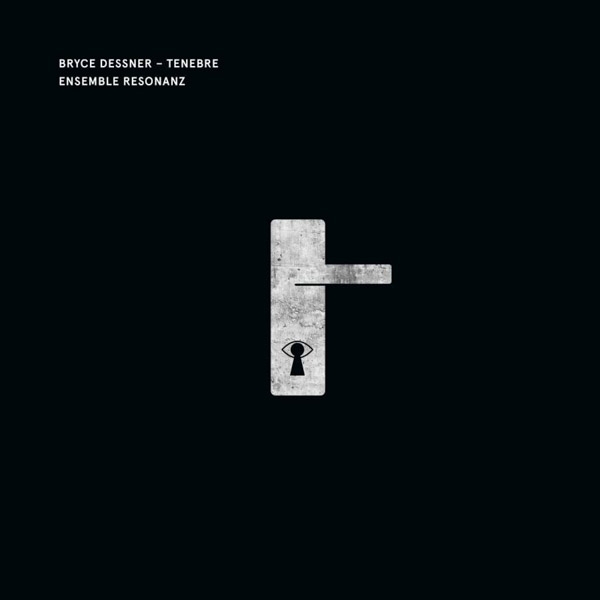| Columns Retired Columns & Blogs |
for the turn on
made my whole morning
probably make my whole day
my night too
maybe my whole week
Dessner makes my kind of music
hr

Dessner’s compositions are carefully conceived amalgams of post-classical minimalism with rock and other genres. His music develops in fascinating, emotionally compelling ways and has the potential to get your foot tapping as it pulls you in and along. His latest recording, Bryce Dessner – Tenebre (Resonanzraum Records RRR 002), includes four compositions, some dedicated to Kronos Quartet, in orchestral versions performed by the Hamburg-based string ensemble Ensemble Resonanz. The album is available for download in either Red Book or 24/48 FLAC format from Presto Classical and HDTracks, or for streaming in 24/48 FLAC on Qobuz if you type in “Tenebre Ensemble Resonanz.” A CD is expected on November 22.
Recorded in Hamburg’s unusual Resonanzraum St. Pauli, the advance CD's sound falls short of the 24/48 download’s. It’s also a little shy of the transparent, color-filled sonics of Dessner’s Deutsche Grammophon recording El Chan, whose performances by Katia and Marielle Labèque and David Chalmin are available for streaming in hi-rez on both Tidal and Qobuz.
Dessner wrote his first string quartet, Aheym, for Kronos, whose recording came out in 2009. In this energetic version, the music builds dynamically as Ensemble Resonanz saws away at an increasingly frenetic pace, creating fascinating timbral combinations. At one point, the music sounds like repetitive baroque strumming on steroids. The ending is a definite wow-level experience.
Tenebre’s counterpoint also increases in volume and rhythmic complexity. Featuring Moses Sumney on vocals, there’s a lot of layering and fading in and out of lines as the music grows more insistent before the final release.
Dessner’s most recent string trio, Skrik Trio (2017), was commissioned by Steve Reich and Carnegie Hall—how’s that for cred? The recording sounds as though the instruments were electronically processed to sound unfamiliar. There’s a primal feeling to this music. Fourteen minutes in, the cello saws furiously. Three minutes later, the music grows slow and eerie.
The album ends with the palpable sorrow of Lachrimae, Dessner’s first composition for string orchestra. Also dedicated to Kronos, this music peaks and crashes in waves that grow increasingly dangerous and bold. Dessner’s endings are special.

for the turn on
made my whole morning
probably make my whole day
my night too
maybe my whole week
Dessner makes my kind of music
hr

to find another one for you, Herb. I try to balance new with old, vocal with instrumental. And then there are times when I encounter something so good that I just say, "F*** it" and write the review, balance be damned.
More to come... Something fun and absolutely unexpected is coming next.
jason


I found some music like this when I was recording the University of West Georgia Saxophone Ensemble. Certainly outside the mainstream, and some would call it academic music, but is has a very sophisticated sound all its own.
Thanks. Jim